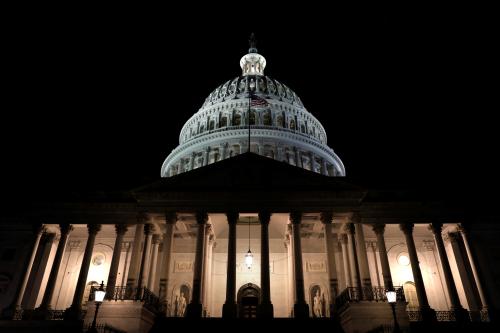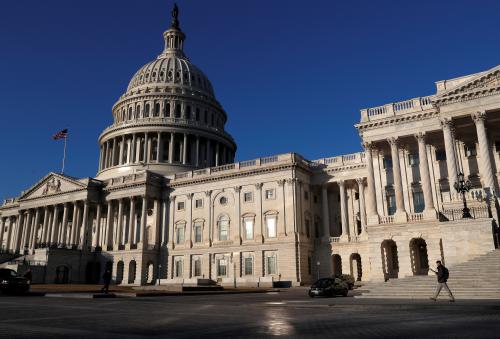This week the Federal Reserve’s Open Market Committee raised short-term interest rates another notch, as expected, signaled they would likely raise rates twice more this year, and changed their “forward guidance” language to clarify their longer run intentions. Chairman Jerome Powell explained clearly why the Committee thought this policy would keep unemployment low and prices stable and answered technical questions in excruciating detail. No mystery; no surprises; no drama; just our central bankers taking their mandate seriously and working hard to explain their actions to the public. Pretty boring!
If only we could say the same about the other aspects of economic policy. Budget policy, health policy, and trade policy are at least as important to our future wellbeing as monetary policy, but in those domains chaos reigns. The tribal warfare between Republicans and Democrats, reinforced by the erratic style of President Trump, have killed deliberate policy-making. No one knows what policy to expect next week, not to mention down the road.
Congress and the president were unable to agree on funding federal agencies until the current year was more than half over. Federal agencies, contractors and grantees charged with carrying out government responsibilities had no basis for planning their activities. We do have a budget for 2019, but only dim hopes of getting appropriations bills passed and signed by the time the fiscal year starts on Oct. 1. Another government shutdown is possible. Don’t even mention dealing with the looming danger of growing national debt or putting Social Security and Medicare funding on a sustainable path. Congress and the president added to the debt burden this year with spending increases and a massive tax cut and no one is even talking about how to start living within our means.
As to health policy, while Republican efforts to repeal and replace the Affordable Care Act failed, so did bipartisan attempts to stabilize the individual insurance market. The Administration seems determined to keep both buyers and sellers of health insurance in a state of constant uncertainty. They stopped expected payments to insurance companies, dropped the mandate that everyone have health insurance, authorized cheaper, barebones plans that will attract the healthy and raise premiums for the sick. They have even refused to defend the extremely popular rule that insurance companies must offer health insurance to everyone regardless of pre-existing conditions at rates that are not affected by their health status. All this leaves those in greatest need of affordable health care wondering what will happen to them next.
Trade policy, what trade policy? Are the steel and aluminum tariffs on or off? Which of our allies do they apply to? Businesses that make steel and aluminum and those that use it—and their customers, suppliers, and competitors—are all trapped in chaotic uncertainty that extends to anyone making, selling or buying products that might be hit with retaliatory tariffs.
Our market economy is a miracle of adaptability and flexibility but cannot be responsive and efficient in a world of policy chaos. Uncertainty about economic policy undercuts business willingness to invest in job creation and productivity improvement. In the face of increased longevity, we exhort workers to save more for retirement and health contingencies. But how can we expect them to plan if policy makers are not doing their jobs of assuring that Social Security and Medicare are sustainably financed?
It is reassuring to have the Federal Reserve behaving responsibly and predictably, but monetary policy can only do so much when other economic policies are floundering. Americans need to use their votes and voices to tell politicians to stop the political warfare and start working together to make stable, understandable economic policy.






Commentary
Economic policy should be more boring
June 14, 2018